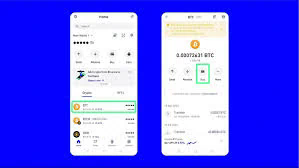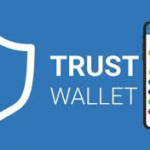The Fastest Methods to Convert Altcoins to Fiat: A Comprehensive Guide
### Introduction
In the rapidly evolving world of cryptocurrency, altcoins are gaining traction as alternative investment vehicles alongside Bitcoin. As investors look to capitalize on their altcoin gains, converting these digital assets into fiat currency (like USD, EUR, etc.) becomes a crucial step. This article delves into the fastest methods for converting altcoins to fiat, exploring the various platforms, processes, and the nuances involved in each method.
### Understanding Altcoins
Before delving into conversion methods, it’s essential to clarify what altcoins are. Altcoins refer to any cryptocurrency other than Bitcoin. They can range from large-cap currencies like Ethereum (ETH) and Ripple (XRP) to smaller, more niche tokens. Each altcoin has its understanding of technology, purpose, and market dynamics, which can influence their convertibility to fiat.
### Popular Altcoins and Their Utility
1. **Ethereum (ETH)**: Known for its smart contract functionality.
2. **Ripple (XRP)**: Designed for digital payment processing in financial institutions.
3. **Litecoin (LTC)**: Often referred to as the silver to Bitcoin’s gold, known for faster transactions.
4. **Cardano (ADA)**: Focused on creating a scalable and sustainable blockchain.
5. **Binance Coin (BNB)**: Used primarily as a utility token for trading fee discounts on the Binance exchange.
The type of altcoin and its market liquidity can significantly affect the ease and speed of converting to fiat.
### Methods to Convert Altcoins to Fiat
#### 1. Cryptocurrency Exchanges
Cryptocurrency exchanges serve as the most common platforms for converting altcoins to fiat. Here’s a detailed look at leading exchanges:
– **Coinbase**: Known for its user-friendly interface, Coinbase allows users to buy, sell, and convert multiple altcoins to fiat quickly. Once the altcoin is traded for fiat, the funds can be withdrawn to a linked bank account. The platform is regulated and compliant with local laws, enhancing security for users.
– **Binance**: As one of the largest exchanges globally, Binance offers a wide array of altcoin pairs, making it an effective platform for conversion. Users can sell altcoins for USDT or other stablecoins before converting to fiat through the exchange.
– **Kraken**: This exchange is renowned for its high liquidity and extensive fiat withdrawal options. Kraken provides a seamless process for converting altcoins to fiat, with competitive fees and a robust security system.
– **Bitfinex**: Known for advanced trading features, Bitfinex allows users to convert altcoins to fiat through trading pairs and withdrawals.
##### **Fees and Transfer Times**
When choosing an exchange, it’s crucial to be aware of the fees associated with the conversion process. Trading fees, withdrawal fees, and deposit methods can impact overall costs. Additionally, transfer times vary by exchange and depend on several factors, including network congestion and the withdrawal method chosen.
#### 2. Peer-to-Peer (P2P) Platforms
P2P platforms are an increasingly popular alternative to traditional exchanges. They allow users to trade altcoins directly with one another, eliminating the need for an intermediary. Some prominent P2P platforms include:
– **LocalBitcoins**: Initially designed for Bitcoin, LocalBitcoins now features P2P trading for various altcoins. The platform connects buyers and sellers directly, allowing for customized trading agreements.
– **Paxful**: Similar to LocalBitcoins, Paxful allows users to find counterparties for their trades. Users can negotiate terms and choose from multiple payment methods, from bank transfers to gift cards.
– **Binance P2P**: Binance has a dedicated P2P platform that allows users to buy and sell altcoins directly. The platform offers escrow services, increasing the security of trades.
##### **Advantages and Disadvantages of P2P Platforms**
P2P trading offers greater flexibility and often fewer fees, but it comes with increased risk. Users must perform due diligence and risk assessments when choosing trading partners, as scams can occur on these platforms.
#### 3. Cryptocurrency ATMs
Cryptocurrency ATMs have emerged as a convenient way to convert altcoins to fiat. Users can visit a physical ATM, complete the necessary transactions by scanning their wallets, and withdraw cash directly.
– **Advantages**: The process is usually quick—most transactions take just a few minutes. Furthermore, users can access funds immediately.
– **Disadvantages**: Not all ATMs support altcoins, and those that do often charge higher fees. Additionally, the liquidity for specific altcoins might be limited.
#### 4. Over-the-Counter (OTC) Trading
Over-the-Counter trading involves direct trading of large amounts of altcoins without publicly listing them on exchanges. OTC trading desks cater to high-net-worth individuals and businesses seeking to convert significant amounts of altcoins into fiat discreetly.
– **Benefits**: OTC trading offers better pricing and reduced market impact. It is ideal for those looking to make large transactions without causing ripples in the market.
– **Drawbacks**: The selection of crypto assets may be more limited than on exchanges, and OTC desks often require a substantial minimum trade amount.
### Important Considerations in Conversion
#### 1. Regulatory Framework
The regulatory environment surrounding cryptocurrency varies by region. Users must adhere to local laws, including Know Your Customer (KYC) and Anti-Money Laundering (AML) requirements on exchanges.
#### 2. Market Volatility
Cryptocurrencies are known for their price fluctuations. Thus, sudden market shifts can significantly affect conversion rates. Traders should consider timing their conversions to minimize losses.
#### 3. Security Considerations
Staying secure while converting altcoins to fiat is crucial. This involves:
– Using two-factor authentication (2FA) on exchange accounts.
– Verifying the legitimacy of P2P trading counterparts.
– Ensuring that cryptocurrency wallets are secure and that private keys are kept confidential.
#### 4. Tax Implications
Converting altcoins to fiat may trigger tax liabilities in many jurisdictions. It’s essential for investors to keep records of their trades for tax reporting purposes. For example, in the U.S., converting cryptocurrencies might be considered a taxable event, which can lead to capital gains taxes.
### Conclusion

The conversion of altcoins to fiat currency is facilitated by various methods, each with its unique advantages and challenges. Cryptocurrency exchanges are the most common platforms, providing user-friendly interfaces for quick transactions. P2P platforms offer flexibility, while cryptocurrency ATMs provide cash access but can come with limitations. OTC trading serves those requiring discretion in large transactions.
Investors should consider factors such as transaction fees, regulatory compliance, security measures, and tax implications before selecting a conversion method. By navigating these dynamics effectively, individuals can optimize their cryptocurrency endeavors and capitalize on the growing landscape of digital finance.
### Further Reading
To deepen your understanding of altcoin conversions and cryptocurrency in general, consider exploring:
1. The fundamentals of blockchain technology.
2. Comparative studies of major altcoins.
3. In-depth tax guides for cryptocurrency transactions.
By continuously educating oneself on the intricacies of the crypto ecosystem, individuals can make informed decisions, maximize gains from their altcoin investments, and navigate the financial implications with confidence.


